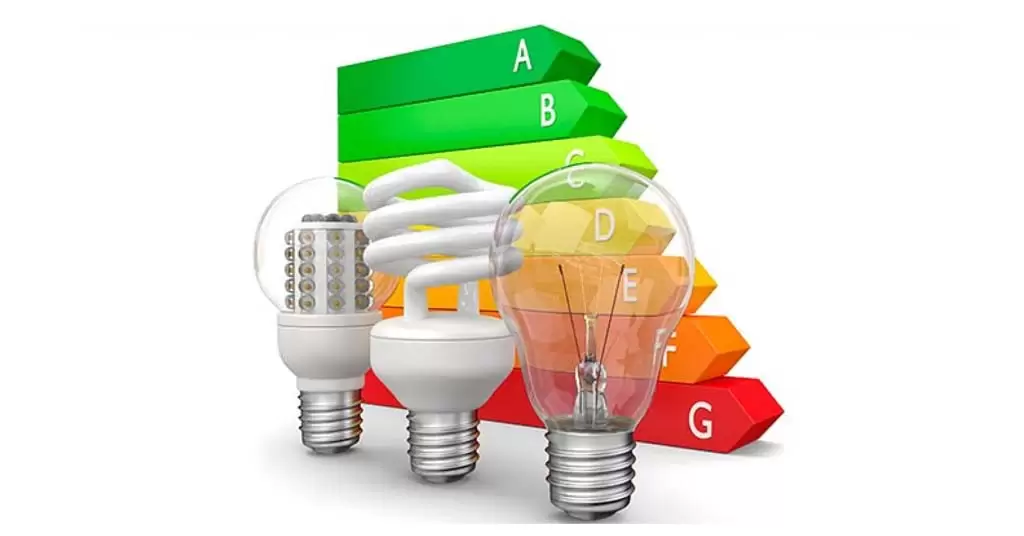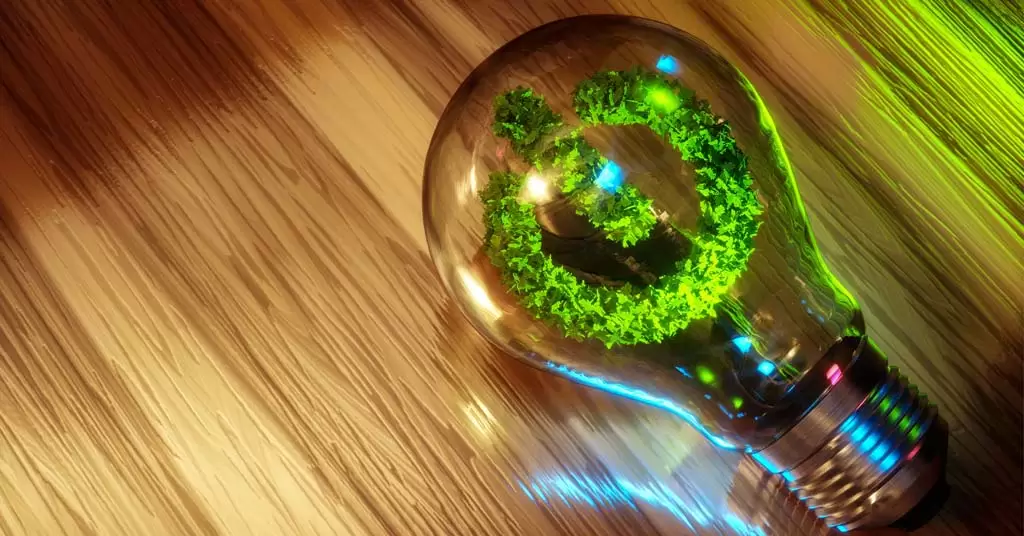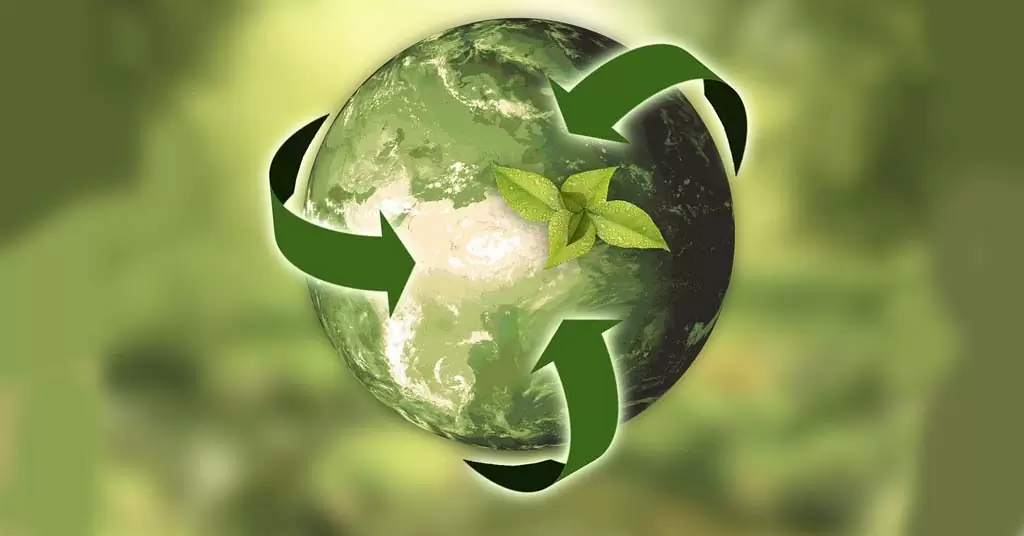It is important to raise awareness of the importance of carrying out energy efficiency in a responsible manner. Therefore, it is necessary to promote energy saving in order to contribute to the conservation of the environment and sustainable development.
But, how can we reduce the consumption of electricity? There are many actions that we can take into account to promote energy saving. They are very simple, since they are found in gestures of our daily routines.
From Greenuso you will know the importance of energy efficiency, what it is and how you can reduce energy consumption in the home. Let’s start!
Table of Contents
What is energy efficiency?
Energy saving and efficiency is an activity that aims to improve and reduce the use of energy sources . This is because, there is an exaggerated use of energy, so we must use it efficiently in order to obtain positive results.

In this sense, energy must be used correctly through a moderate decrease in the provision of services. Using energy efficiently also means not using it in unnecessary activities. To achieve this, it is important to use technologies in our system of life, and thus achieve sustainable development.
By using energy efficiently we also contribute to the protection of natural resources, as we are reducing the environmental impact. However, to achieve this we not only need efficient technologies, but also responsible consumers.
How can we manage and reduce energy consumption in the home?
There are many aspects of our daily life where there are many possibilities to manage and reduce energy consumption. Discover them below:
1. Household appliances
By having efficient electrical appliances, we contribute directly to the reduction of energy consumption and, of course, significant energy savings. When buying an appliance we have to check quickly if it has the energy label.
The label indicates whether the appliance’s energy consumption is in the green class A, the most efficient class. The G class, which is red, is the least efficient. Although the appliance may be a little more expensive, in the long run the cost ends up paying for itself.
2. Heating and air conditioning
Heating is a device that does not use much electricity if you take into consideration several parameters, including maintenance. In addition, variations in its temperature could increase up to 7% in payment.
It is important that, before starting the winter, you check the heating systems from the boiler to the radiators. Make a continuous maintenance so that it does not present problems at the moment of heating, because if you do not do it, its work will be more arduous and will consume more energy.
As far as air conditioning is concerned, when installing an air conditioner, take into account its orientation. It is recommended that you place the appliance to the northwest so that it is not in front of the sun during the day.
Also, it is important the correct and continuous maintenance of the filters. In addition to the regulation of the temperature, which must be placed in 22ºC so that it does not increase in the cost of the invoice.
3. Water
Saving water not only saves the pocketbook, but also contributes to the care of lakes, rivers and seas. Therefore, it is convenient to take into account some measures at home, such as not consuming much water when bathing, turning off the taps when not in use, among others.
Also, you can reduce water consumption by installing water-saving devices in showers and taps.
4. Lighting
Another way of contributing to energy efficiency is through the use of LEDs, thus replacing conventional lamps or bulbs. This alternative generates an energy saving of approximately 80% with respect to traditional lighting. In addition, they are respectful with the care of the environment
5. Transport
Means of transport are responsible for the emission of 25% of CO2, 67% of Nitrogen Oxides and 87% of Carbon Monoxide (CO). This means that they pollute the environment considerably.
Therefore, there are some habits that can contribute to energy efficiency, such as not reaching excessive speeds or driving in sudden movements. Not lowering the windows and keeping the air conditioning at a temperature of 21ºC. Also, make a correct maintenance of the tyres and the engine constantly.
However, many users use the electric vehicle because it is more efficient, as it does not emit any polluting gas, although fossil fuels are usually burned during the process of generating electricity to recharge it.
Without a doubt, an energy-saving home is also saving a lot of money, that is, it contributes to the well-being of our daily lives.
Furthermore, energy efficiency improves the care of the environment, since by saving every particle of energy we are directly contributing to improving our health and that of our planet. And you, how do you contribute to improving the energy efficiency of your home?
It is important to raise awareness of the importance of carrying out energy efficiency in a responsible manner. Therefore, it is necessary to promote energy saving in order to contribute to the conservation of the environment and sustainable development.
But, how can we reduce the consumption of electricity? There are many actions that we can take into account to promote energy saving. They are very simple, since they are found in gestures of our daily routines.
From Greenuso you will know the importance of energy efficiency, what it is and how you can reduce energy consumption in the home. Let’s start!
What is energy efficiency?
Energy saving and efficiency is an activity that aims to improve and reduce the use of energy sources . This is because, there is an exaggerated use of energy, so we must use it efficiently in order to obtain positive results.

In this sense, energy must be used correctly through a moderate decrease in the provision of services. Using energy efficiently also means not using it in unnecessary activities. To achieve this, it is important to use technologies in our system of life, and thus achieve sustainable development.
By using energy efficiently we also contribute to the protection of natural resources, as we are reducing the environmental impact. However, to achieve this we not only need efficient technologies, but also responsible consumers.
How can we manage and reduce energy consumption in the home?
There are many aspects of our daily life where there are many possibilities to manage and reduce energy consumption. Discover them below:
1. Household appliances
By having efficient electrical appliances, we contribute directly to the reduction of energy consumption and, of course, significant energy savings. When we buy a household appliance we have to check quickly if it has the energy label.
The label indicates whether the appliance’s energy consumption is in the green class A, the most efficient class. The G class, which is red, is the least efficient. Although the appliance may be a little more expensive, in the long run the cost ends up paying for itself.
2. Heating and air conditioning
Heating is a device that does not use much electricity if you take into consideration several parameters, including maintenance. In addition, variations in its temperature could increase up to 7% in payment.
It is important that, before starting the winter, you check the heating systems from the boiler to the radiators. Make a continuous maintenance so that it does not present problems at the moment of heating, because if you do not do it, its work will be more arduous and will consume more energy.
As far as air conditioning is concerned, when installing an air conditioner, take into account its orientation. It is recommended that you place the appliance to the northwest so that it is not in front of the sun during the day.
Also, it is important the correct and continuous maintenance of the filters. In addition to the regulation of the temperature, which must be placed in 22ºC so that it does not increase in the cost of the invoice.
3. Water
Saving water not only saves the pocketbook, but also contributes to the care of lakes, rivers and seas. Therefore, it is convenient to take into account some measures at home, such as not consuming much water when bathing, turning off the taps when not in use, among others.
Also, you can reduce water consumption by installing water-saving devices in showers and taps.
4. Lighting
Another way of contributing to energy efficiency is through the use of LEDs, thus replacing conventional lamps or bulbs. This alternative generates an energy saving of approximately 80% with respect to traditional lighting. In addition, they are respectful with the care of the environment
5. Transport
Means of transport are responsible for the emission of 25% of CO2, 67% of Nitrogen Oxides and 87% of Carbon Monoxide (CO). This means that they pollute the environment considerably.
Therefore, there are some habits that can contribute to energy efficiency, such as not reaching excessive speeds or driving in sudden movements. Not lowering the windows and keeping the air conditioning at a temperature of 21ºC. Also, make a correct maintenance of the tyres and the engine constantly.
However, many users use the electric vehicle because it is more efficient, as it does not emit any polluting gas, although fossil fuels are usually burned during the process of generating electricity to recharge it.
Without a doubt, an energy-saving home is also saving a lot of money, that is, it contributes to the well-being of our daily lives.
Furthermore, energy efficiency improves the care of the environment, since by saving every particle of energy we are directly contributing to improving our health and that of our planet. And you, how do you contribute to improving the energy efficiency of your home?



